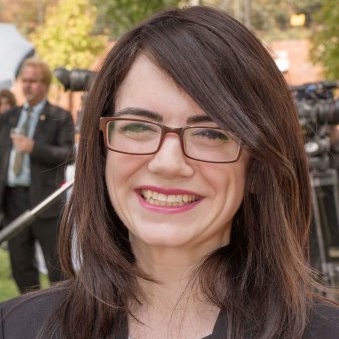click to dowload our latest edition
CLICK HERE TO SUBSCRIBE TO OUR NEWSLETTER


Published
6 years agoon
By
adminSTEVEN GRUZD
On Tuesday night at Beyachad, Black fielded questions from the Johannesburg Jewish community on the balagan around this new legislation, and Israel-diaspora relations more broadly. She asserted that her job is to explain Israel’s position, listen to the Jewish community, and relate its sentiments back to her government.
But many left the discussion with more questions than answers.
Officially called the “Basic Law: Israel as the Nation-State of the Jewish People”, the legislation squeaked through the Knesset on 19 July by 62 votes to 55, with two abstentions. This was after seven years of haggling, revisions, and heated arguments.
Along with designating Israel’s flag, national anthem, and major holidays, it also says that only the Jewish people have “the right to exercise self-determination in the State of Israel”. It describes Arabic as a language with “special status” (not an official language). It also states that, “The state views the development of Jewish settlement as a national value, and will act to encourage and promote its establishment and consolidation.”
Black insisted that the law doesn’t infringe on the rights of non-Jewish Israelis, and that Arabic will be unaffected.
She said Israel is disproportionately scrutinised in the media, joking that, “If a pencil moves in Israel, it’s news.” Black contended that there were “zero international repercussions” for the law, but that Israel continually had to justify itself internationally.
Black repeatedly asserted that all the noise around the nation state law – the protests, court challenges, and clamorous debate – was a bell-weather for the diversity, vibrancy, and strength of democracy in Israel, a sprightly spring chicken of a state only 70 years old. She said she trusted the courts, the Knesset, and the democratic system itself to iron out any undemocratic kinks.
Black said this law was so important, “because for Israel to… push for two states, one will have to be a Jewish one.”
She faced tough questions.
One person asked whether the law was all about domestic politics, with a general election looming in Israel. No real reply was given – diplomats rarely talk politics if they can duck that punch.
Another said South African Jews were victimised and demonised for supporting Israel, often feeling abandoned by the Israeli Embassy.
A third commented that 2018 was not 1948. Israel’s actions always have consequences for the diaspora, but this is a “blind spot” for Jerusalem. Can Israel still expect unconditional love from the diaspora, especially from South Africa’s legendary but embattled Zionistic community?
Black emphasised how important the South African Jewish community is, calling it “world famous” for its Zionism. She insisted that the diaspora matters, and must be part of the dialogue. “We have an entire ministry in our government dealing with the diaspora… I need to report back constantly to Jerusalem what the South Africa Jewish community feels, thinks, and needs.”
Perhaps, but Israel still doesn’t have a foreign minister (the prime minister doubles up in the role). What does that say about how seriously it treats the world’s views?
On the Israel-South Africa relationship, she said that people-to-people and business-to-business connections remained largely unaffected by diplomatic tensions, the latest round of which included the recall of the South African Ambassador from Tel Aviv, and the ANC decision to downgrade its embassy there to a liaison office.
“It’s complicated,” Black said of current intergovernmental relations, pointing out that there is “no talk” of any change to the status of the Israeli mission in this country.
Another audience member said that Zionism’s ideals had been eclipsed by a creeping theocracy in Israel, shrinking civic space, and billions of shekels poured into West Bank settlements. She talked, instead, of bank accounts established for all Israeli children by the government.
On the relocation of the United States Embassy from Tel Aviv to Jerusalem in May, Black called it “an injection of reality” that would hopefully bring the Israelis and Palestinians back to the negotiation table. “It will help [the Palestinians] see that time is up”, and finally negotiate a solution to the conflict.
Black used the opportunity to update the community on the tensions on Israel’s northern borders from Syria and Iran, and the wave of incendiary “arson kites” launched daily from Gaza. She spoke of the so-called Palestinian “Great March of Return” and the bitter irony of Hamas supporters setting fire to the Kerem Shalom border crossing, through which tons of supplies cross daily into Gaza.
Some mumbled that Black was cagey, and had dodged the most controversial questions, but all agreed this sort of candid conversation is crucial. Let’s hope it’s not the last of its kind.
Pictured: Ayellet Black
